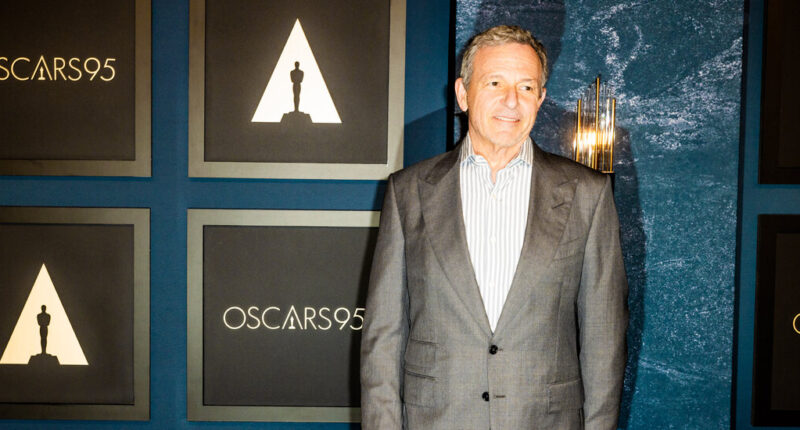
Robert A. Iger has extended his reign at Disney through 2026, as an heir continues to be difficult to find and questions mount about the viability of the company’s vaunted movie studios and theme parks.
The Walt Disney Company said on Wednesday that Mr. Iger, 72, will remain chief executive for two years beyond his previously announced re-retirement date, the company’s board of directors said in a statement. Mr. Iger reluctantly ended his first run at Disney in 2021, handing the company’s top job to Bob Chapek, a former theme park executive. Mr. Chapek was fired in November, and Mr. Iger returned as chief executive.
At the time, Disney said Mr. Iger had been asked to return “to set the strategic direction for renewed growth and to work closely with the board in developing a successor to lead the company at the completion of his term.” Mr. Iger repeatedly said that he would retire for good when his contract was up at the end of 2024.
“My plan is to stay here for two years,” Mr. Iger told CNBC in November. “That was my agreement with the board, and that is my preference.”
Many people at Disney and in Hollywood were skeptical. During his first tenure as chief executive, from 2005 to 2020, Mr. Iger delayed his departure at least three times. (He continued as Disney’s executive chairman for a year after stepping down as chief executive.)
In the eight months since Mr. Iger has been back at Disney, he has moved quickly to cut costs — some $5.5 billion, in part by eliminating 7,000 jobs, including at Pixar and ESPN — and push Disney’s streaming operation toward profitability. He also won a proxy battle with an activist investor, one turning in part on Disney’s poor track record of succession planning. But a successor has yet to be identified.
The board has been looking at candidates inside and outside the company, Disney has said. Mr. Iger brought a trio of executives with him to this week’s Allen & Company Sun Valley media conference, the annual “billionaires’ summer camp,” and all are viewed as succession possibilities: Dana Walden, a co-chairman of Disney Entertainment; her counterpart, Alan Bergman; and Josh D’Amaro, chairman of Disney Parks, Experiences and Products.
Disney is dealing with problems on almost every front, including new questions about its movie studios, given disappointing results at the summer box office for “Elemental,” “Indiana Jones and the Dial of Destiny” and, to a lesser extent, “The Little Mermaid.” Disney is also contending with a lingering screenwriters’ strike; and negotiations between studios and SAG-AFTRA, the guild that represents about 160,000 actors, for a new contract have been going poorly and could result in a strike as early as Thursday.
Unlike most of its rival media conglomerates, Disney can rely on its theme park business for profit and growth — unless a recession hits. Lately, attendance at the company’s largest property, Disney World in Florida, has appeared to significantly weaken.
Disney shares have been trading at about $90, down 3 percent from a year ago and 54 percent from their peak in March 2021.
Source: | This article originally belongs to Nytimes.com









